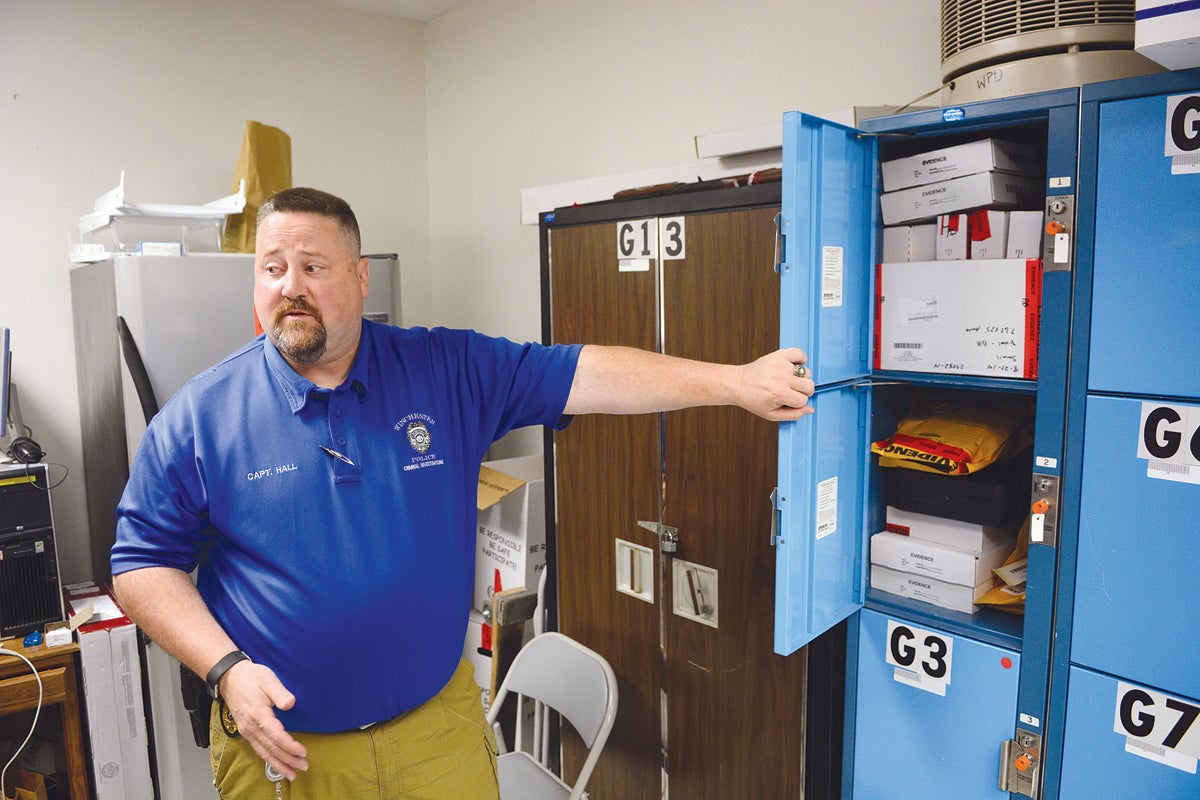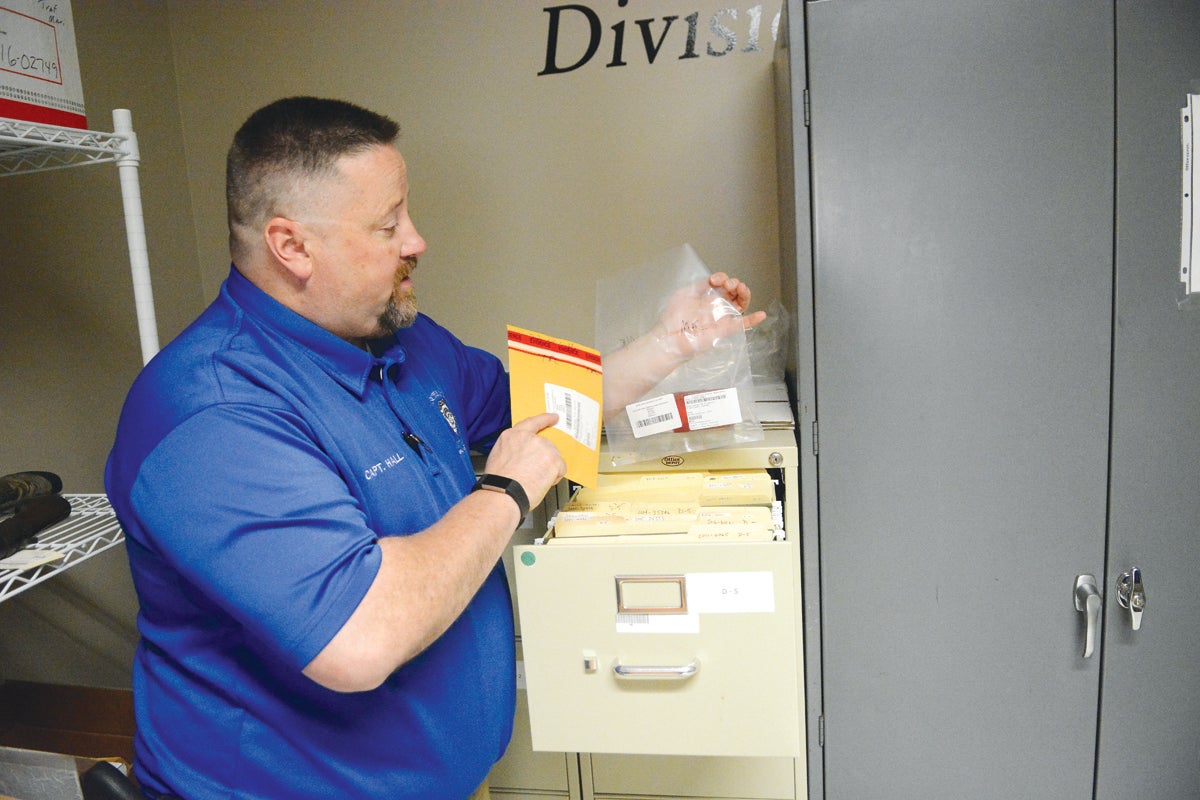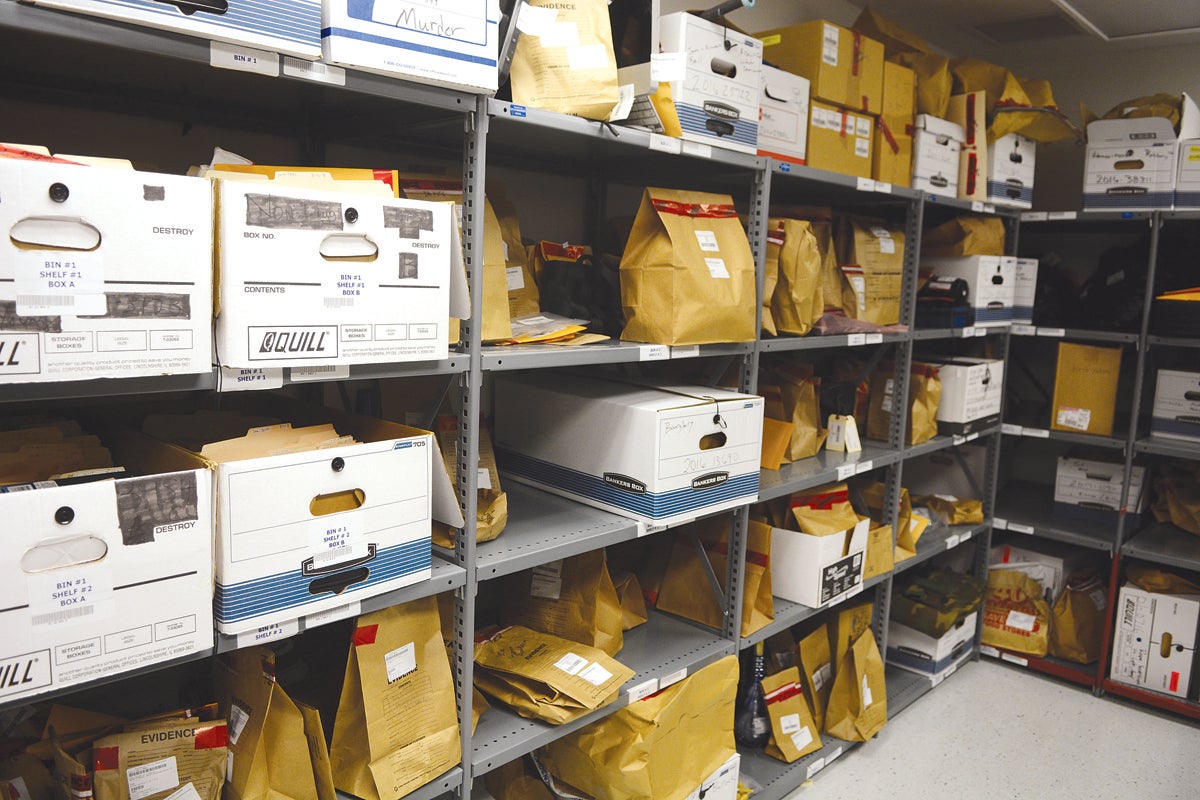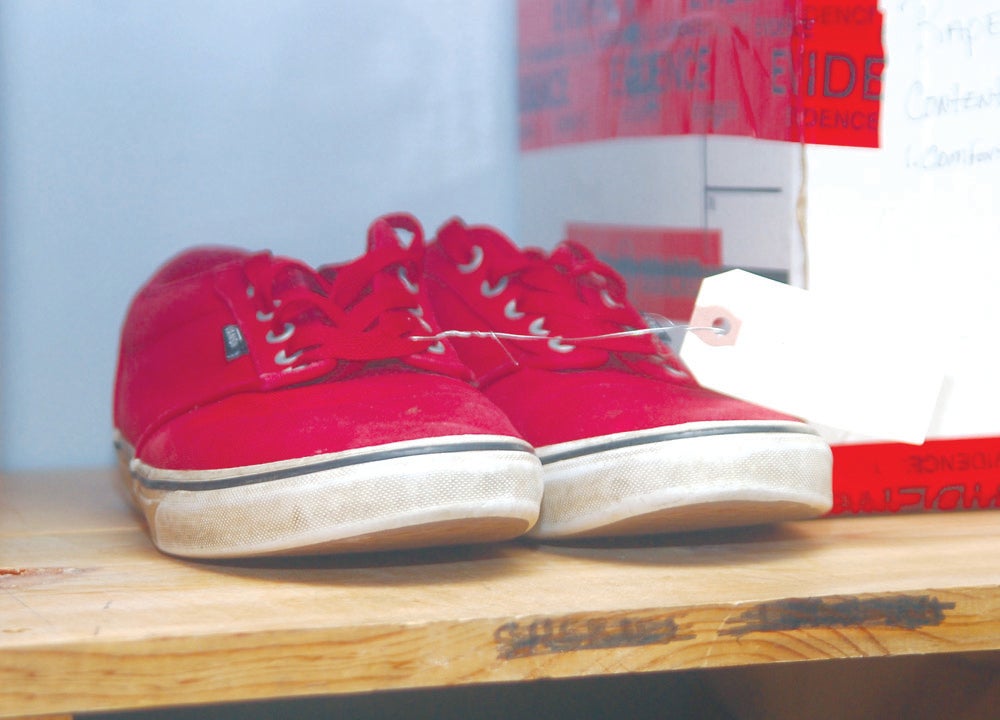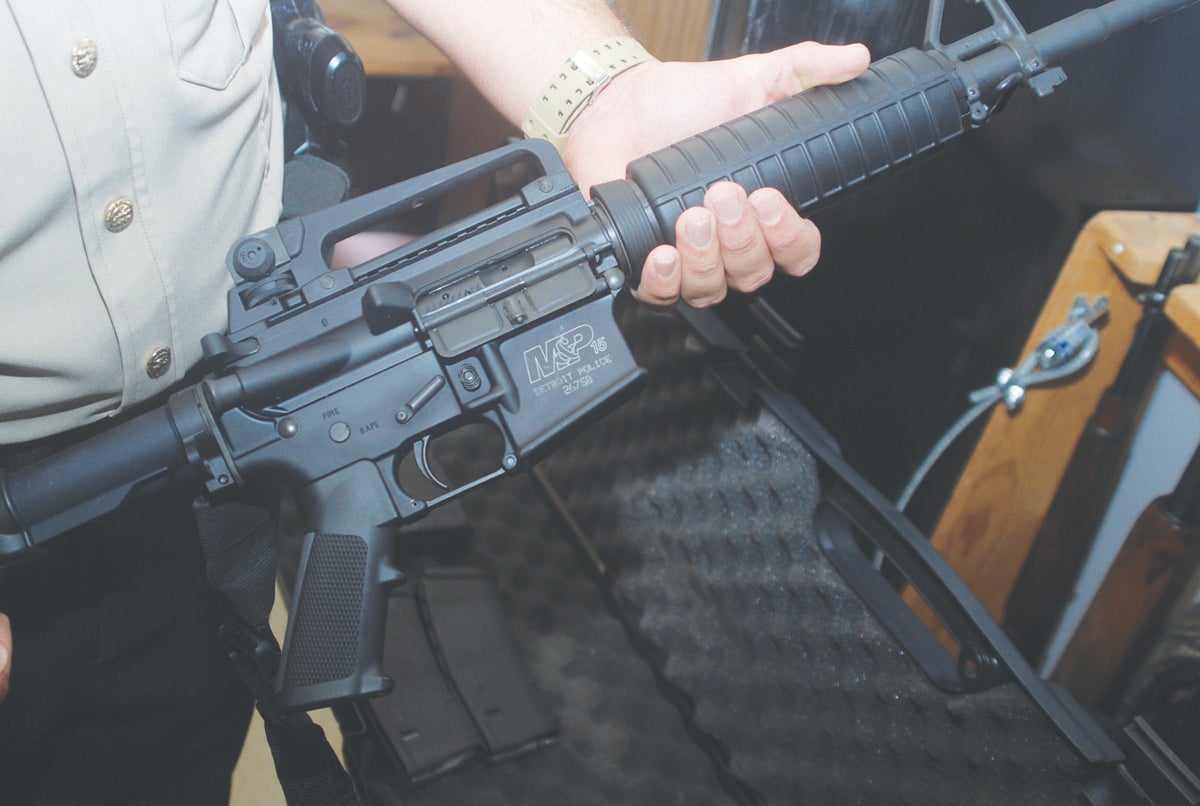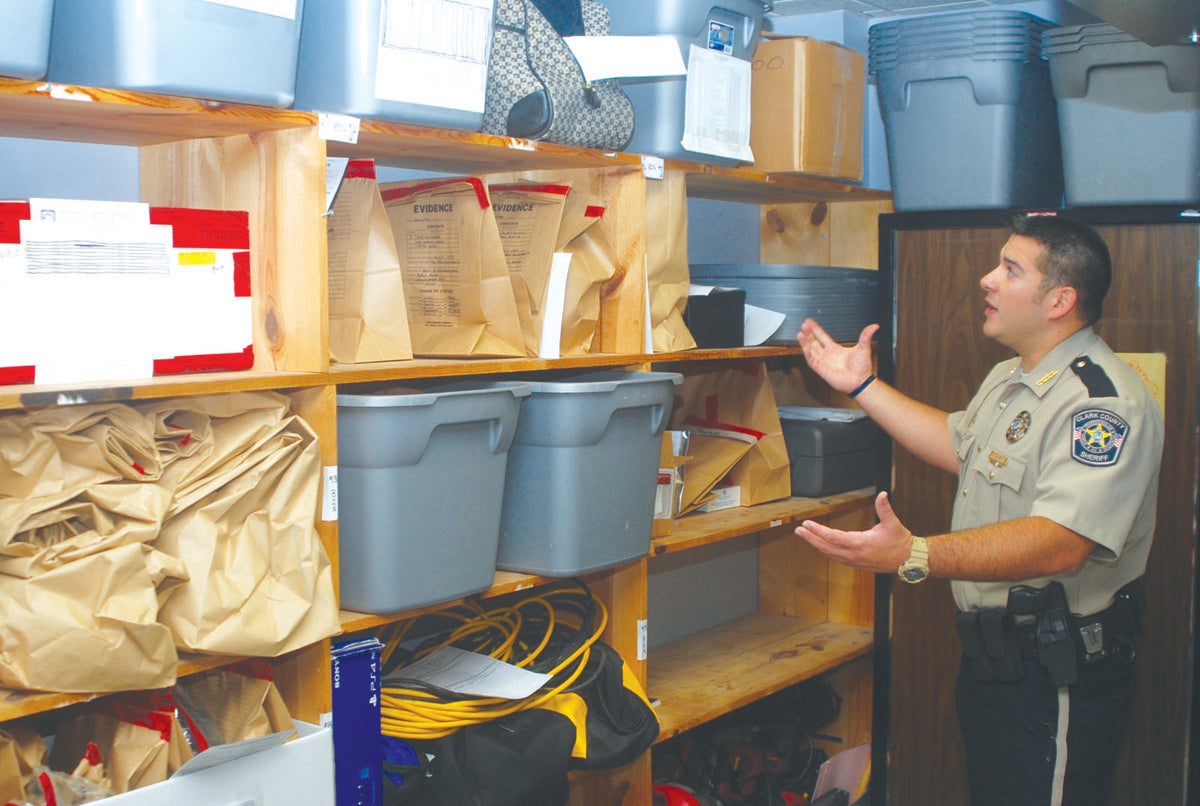Closer Look: What’s in the evidence room
Published 10:09 am Saturday, July 8, 2017
Editor’s note: This is the first installment of A Closer Look, a weekly in-depth story focusing on a local issue. This week, we look at police evidence and how local agencies preserve and dispose of those items.
Open the door to one of the evidence storage rooms at the Winchester Police Department, and you’re greeted with an unmistakable scent.
Marijuana.
Confiscated as part of a criminal case which was recently resolved, the plants are destined to be destroyed. It’s been in the room for the better part of a year, waiting for a trial which never happened.
Between the Department and the Clark County Sheriff’s Office, there are hundreds if not thousands of items held in evidence. Some are items used in the commission of a crime. Some are recovered, yet unclaimed, property taken in robberies or burglaries.
Some evidence, such as items from a homicide or a major case, will remain in the evidence room for decades.
Evidence is defined as “that which tends to prove or disprove something.” Evidence can be literally anything.
There are safes containing firearms, drugs and cash. There are locked file cabinets containing items related to dozens of cases, all catalogued and recorded to be found at a moment’s notice. There are bags with golf clubs. There are air compressors. There are red canvas tennis shoes. Their are chain saws and tools.
Everything is tagged as evidence.
What to keep
Both the WPD and CCSO are accredited through the Kentucky Association of Chiefs of Police, which includes standards for storing, retaining and recording evidence. Both Winchester Police Chief Kevin Palmer and Clark County Sheriff Berl Perdue Jr. told of a massive purge of evidence from old cases during the accreditation process.
“Lo and behold, we get in and find evidence that’s been there for two decades,” Palmer said.
“When we purged our evidence room, we took mostly junk items of no value, either evidentiary or monetarily,” Perdue said. “We took two truck loads of what I’d call junk items to be crushed or burned. We had things in the evidence room since the 1990s.
“As part of our accreditation, we do a monthly purge of what we can get rid of.”
Retention varies greatly. Usually, once a case is resolved, the property can be returned, whether to the victim or the defendant. In many cases, the agency can seek to have items forfeited to the department, such as vehicles used to transport drugs or items purchased with drug money, Palmer said.
Seized drugs are destroyed. Firearms are turned over to the Kentucky State Police, according to state law, to be destroyed or sold.
Evidence from major felonies as well as from cases that went to trial, are kept longer.
“… We keep those indefinitely simply because the potential of appeals that can take years,” Perdue said. Years ago, a homicide Perdue worked was returned to the local court on appeal. When he went to review the evidence, most of it had been disposed of, he said.
“I don’t think it would have made a difference if it went back to trial, but it’s always better safe than sorry,” he said.
Palmer said he was contacted once by a retired officer concerning a case from the 1960s. The person convicted in the case was due for a parole hearing.
“Just for curiosity, I went to try and find the case,” Palmer said. “I found the sketches and everything.”
Occasionally evidence in a cold case will prove useful in a current case. Winchester Police Capt. James Hall said there was an instance where a video from a death scene in the 1990s was used to verify statements in a more recent case.
“We had to scrounge a VCR,” Hall said. “Luckily, the video showed some of the key evidence.”
“There’s no more purposeful evidence than that,” Palmer said. “That’s the reason for retention.”
Handling evidence
Both agencies have dedicated people for handling evidence. Their procedures are similar. Officers and deputies collect evidence on the scene and deposit it in a locker at the office as soon as possible. The evidence technicians, Hall and detective Eric Campbell at WPD and Deputy Matt Eversole at CCSO, have the only keys to the lockers and evidence rooms at their respective offices. Daily, they log new evidence in a computer and store it in the evidence rooms. Everything is marked and recorded in a database.
Within locked evidence rooms are locked file cabinets or safes containing the marked evidence until it is needed elsewhere.
Hall said he usually spends a couple hours each day processing evidence. Eversole said he can spend four to five hours some days just dealing with evidence.
“It could be a full-time job,” he said.
WPD uses a system which creates bar codes for each piece of evidence. CCSO will be implementing that later this year.
“Evidence has come a long way,” Perdue said. “Fifteen years ago, we had ledger books. Now, we’ll start bar codes at the end of the year to make it even faster.”
As part of maintaining their accreditation, the evidence is audited once a year when an outside person comes in and generates a list of random items for the officers to locate.
The technicians are also responsible for transporting evidence to and from the KSP crime lab. They are responsible for checking evidence in and out of custody, such as for a court trial or the lab. They also release property or destroy property, following court orders and established policies.
Perdue said he reviews a list regularly of evidence which can be released and he makes the final call.
“We usually hold onto things longer than 90 days for due diligence,” he said.
Guns, money and drugs are all stored separately, even if they are from the same case, Palmer said. The goal is to limit the times the evidence is opened. Once an envelope or plastic bag is sealed, it’s only opened at the lab or in court, Palmer said. Large sums of money are counted by multiple officers or taken to the bank to be counted. Large amounts of drugs have been weighed at the post office.
“We want to be above reproach,” Palmer said. “Our practices are accredited practices.”
Forfeiture
Following a trial or a guilty plea in court, the agencies can file forfeiture requests for property of value, including cash, with the judge for a ruling. Sometimes, Hall said, they have to return the property to the “bad guys.”
Many times, the property can be turned over to the department for its use or sale. Cash can be used to fund operations or equipment purchases, such as cruisers, for the agencies which ordinarily would have come from taxpayer funds.
Several years ago, WPD detectives seized a Buick Grand National, a prized collector car, as part of a drug case, Palmer said. The car was used to transport drugs and was seized for its forfeiture value. The car was eventually turned over to the department and sold, he said.
“We have seized houses several times” in connection with drug cases, Palmer said, where the houses were bought with cash and the occupants had no legal source of income. “Ultimately, we put them in the hands of a realtor and they were sold.”
Palmer said one case involved the theft of several televisions from a store. Because the boxes were opened, the store didn’t want them back and gave them to the department, one of which is a monitor for the interview room, he said.
Oddities
Through the years, seemingly everything will pass through an evidence room.
“We’ve had everything from grow lights (for indoor marijuana) to taxidermy items,” Perdue said. “You get a little of everything.”
Some things are too big for the usual evidence room.
“About a year or so ago, we busted a mobile meth lab in a Ryder truck with $60,000 of stolen truck tires,” Palmer said. “Those had to be stored inside.” They were never claimed and were auctioned.
Eversole said he recently recovered an assault rifle and ‘go bag’ which were stolen from a Detroit Police officer. One of the suspects told Detroit officers the gun was in Clark County. When Eversole received permission to search the house, the gun was there in its case with the backpack nearby.
“We’ve done asset forfeiture on court orders where we took household items and expensive pieces of art,” Perdue said.
Some things Perdue said he was glad to see go.
“When I did evidence at the police department, we seized, along with a federal agency, a bunch of exotic snakes that were brought into the country illegally,” he said. The feds took care of the snakes, he said.
Sometimes evidence is memorable for its ingenuity, like a person stopped for driving under the influence on a motorcycle, Perdue said. As officers examined the machine, they found the saddle bags were actually storage tanks for 30 quarts of moonshine.
“The most cumbersome and smelly thing was we did a drug bust on a tractor trailer and seized about 200 pounds of marijuana,” Perdue said. “That was in the room across from my office. That’s all you could smell for a year.”


